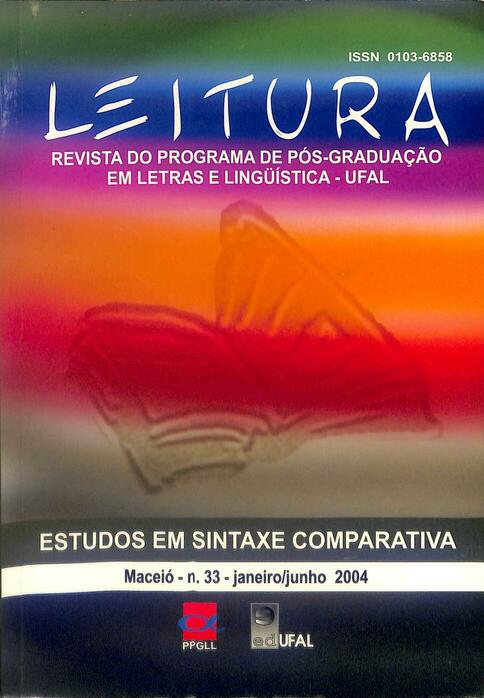Syntactic and pragmatic features: a case study
DOI:
https://doi.org/10.28998/2317-9945.200433.185-202Palavras-chave:
syntactic features, pragmatic features, agreementResumo
In the generative literature, it has always been assumed that
syntactic agreement takes place by means of syntactic operations that
target the so-called phi-features. Lexical items are not atomic, but rather
made up of phonetic material plus syntactic features, which encode
grammatical information regarding, for example, number, gender, person,
and case. According to Chomsky's Derivation by Phase, syntactic
agreement happens between two lexical items when two operations take
place: Merge and Agree. If both these operations occur, syntactic
agreement is established. In this paper, I shall move some objections
against the traditional idea of phi-features and agreement. These
objections derive directly from data observation. I shall show that some
agreement and interpretational patterns of Italian impersonal si an
European Portuguese a gente constructions are unexplainable within the
current generative theory. I shall therefore argue for the existence of an
additional set of features encoding pragmatic/deictic
feature set, which I call the sigma-set (see D'Alessandro, 2004), is
responsible for the so-called semantic agreement phenomena that have
often been considered as solely acting in the pragmatic component of the
grammar (Wechsler and Zlatió, 2001). I propose instead that pragmatic
information is encoded syntactically, in the sigma-set, which appears a
least in personal pronouns.










